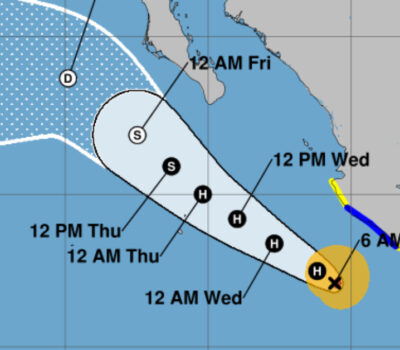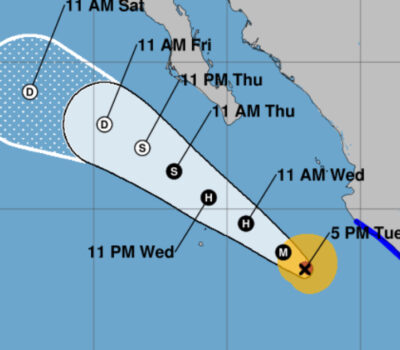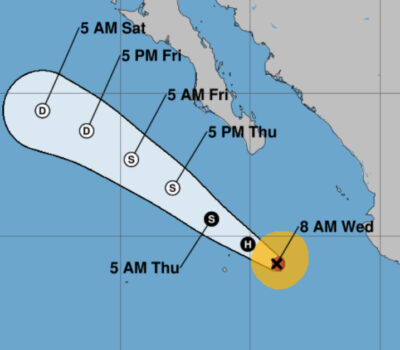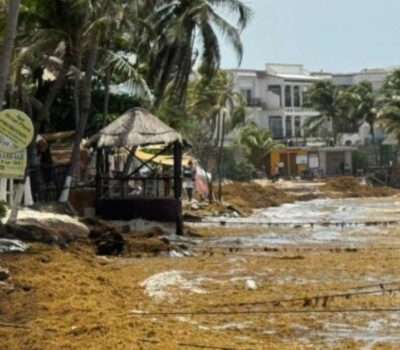Cancun’s Tourist Police, currently 95 officers strong, say they need at least double that to properly patrol the Hotel Zone. Recruitment efforts are underway amid corruption concerns.
The director of Cancun’s Tourist Police, Ricardo Morales Santos, has revealed that the current force of 95 officers is insufficient to adequately patrol the city’s sprawling Hotel Zone, which stretches more than 20 kilometers along the Caribbean coast. According to Morales Santos, the force would need to at least double in size to meet the demands of the growing tourist population and maintain safety in one of Mexico’s most visited destinations.
“Increasing the number of officers is a long-term process,” Morales Santos stated in a brief interview. “We’re working closely with the municipal Citizen Security Secretariat to recruit more personnel.”
Cancun’s Hotel Zone, a narrow stretch of beachside resorts, nightclubs, restaurants, and shopping centers, is the epicenter of the city’s tourism economy. Each year, millions of domestic and international visitors descend on this area, which places enormous pressure on the local police force to maintain public safety, provide tourist assistance, and prevent crimes ranging from theft to more serious offenses.
What the Tourist Police Do
The Tourist Police in Cancun are a specialized division tasked with assisting foreign and domestic tourists, offering guidance, ensuring safety, and addressing minor infractions. Officers are typically bilingual and trained in conflict resolution, first aid, and cultural sensitivity. They serve as the frontline support for visitors who might not be familiar with Mexican laws or customs, and often intervene in disputes involving tourists, help with lost property cases, and liaise with consular offices in emergencies.
Their responsibilities also include:
- Patrolling key tourist corridors and beach areas
- Preventing scams and petty crime targeting visitors
- Coordinating with federal, state, and municipal police during high-profile events or emergencies
- Providing accurate information and directions to tourists
- Assisting tourists who are victims of crime or accidents
Despite their specialized training, the current size of the force is spread thin, especially during peak travel seasons and holiday weekends. “We need at least twice as many officers,” Morales Santos emphasized. “The police force needs to be more powerful.”
Corruption Concerns Surface
In addition to staffing challenges, the Tourist Police have also had to contend with internal integrity issues. Morales Santos confirmed that in 2025, there have been three to four cases of suspected corruption involving Tourist Police officers. These cases were investigated by the Internal Affairs Directorate.
“We are trying to prevent officers from engaging in acts of corruption or abusing their authority, or misusing their uniforms and badges,” Morales Santos added. No further details were disclosed about the nature of the misconduct or whether any disciplinary actions were taken.
Tourism-related corruption, especially involving police officers targeting foreign tourists with unwarranted fines or detentions, has been a long-standing issue in popular Mexican destinations. The Quintana Roo state government and local municipalities have introduced several measures in recent years to improve transparency and restore public trust, including internal investigations, body cameras, and the creation of citizen complaint hotlines.
Long-Term Solutions Needed
The ongoing recruitment campaign by the Citizen Security Secretariat aims to strengthen the ranks of the Tourist Police, but local authorities acknowledge that attracting, training, and deploying new officers takes time. In the meantime, the existing 95 officers are tasked with covering vast areas daily, including beach zones, hotel entrances, entertainment venues, and public transportation hubs frequented by tourists.
Cancun’s safety remains a top priority for local authorities as the city continues to break tourism records. In 2024 alone, Cancun welcomed more than 30 million visitors, many of whom spent time in the Hotel Zone. With such heavy foot traffic, experts agree that public security infrastructure must evolve alongside the city’s growing popularity.
While the presence of police is a key part of ensuring tourist safety, local leaders stress the importance of balancing visibility with professionalism and accountability. Strengthening internal oversight mechanisms and expanding the force through targeted recruitment will likely remain central strategies for authorities in Cancun.
As of now, no timeline has been given for when the Tourist Police force might reach its desired size. Until then, the current team continues to operate under strain, committed to safeguarding one of Mexico’s most visited destinations.
Cancun’s Tourist Police, currently 95 officers strong, say they need at least double that to properly patrol the Hotel Zone. Recruitment . . .












